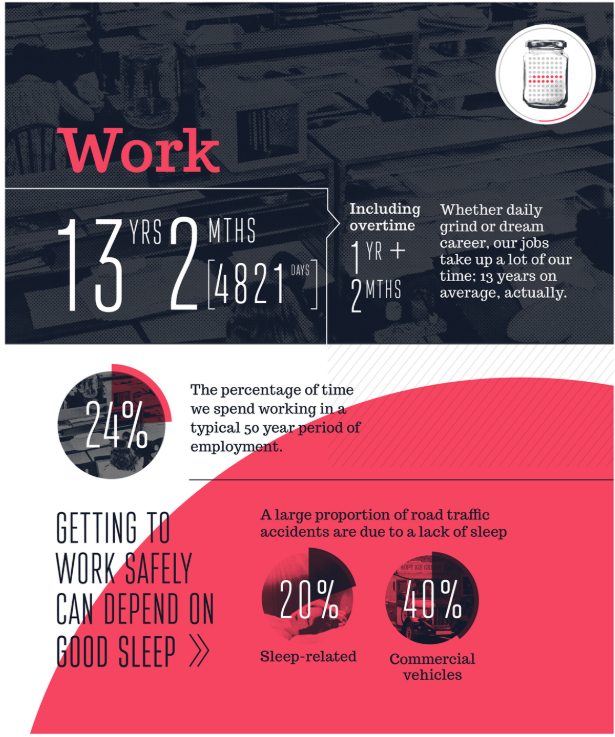Why early retirement was my only way out
Left unsatisfied by the rat race and corporate culture; early retirement was the only way out for me.

I am a huge believer in moving around in your career. I made much more money by moving from company to company because every move I made came with a raise. And a different set of responsibilities that, frankly, I wasn't all that keen on having.
The pattern quickly emerged as something that I could count on, like the earth spinning to make the sun look as if it were rising and setting.
Each move came with a bigger salary, but as I learned, more money wasn't really solving the problem. The problem was much deeper.
I have written before that I never liked working in corporate America. The entire structure was built around containing the herd, funneling us peons through fences and around obstacles straight toward mission statements and arbitrary deadlines.
Over time working a job, I would quickly grow tired of it. Tired of the same ol' work. Tired of the same office, the same surroundings, the same coworkers.
Within a couple of years of working virtually any job, I'd be itching to try something else. Anything...just to give me something else to focus on.
Activate search and rescue mode!
Slowly, my feelers would extend outward in search of something. Anything that felt better. Maybe another company that did similar work. Perhaps a move across the country would make me happier. I didn't necessarily know what I wanted.
All I knew was that I wanted something different.
More money? Sure, that always helps.
And the longer that finding another job took, the more I wanted to move. The stuff that I hated about the place I worked at seemed to magnify. Meetings seemed longer. Deadlines appeared to get even shorter. Overnight, everything just felt so much worse because I wanted to move on so, so bad.
And eventually, I'd get an offer to move. Phew!
Finally...finally I get to escape this place. I no longer have to deal with this shit. All the insane product schedules and HR policies that made me feel like I was an untrustworthy stooge trapped in elementary school. It's all gone.
I gave the customary two weeks notice and bailed. See ya, suckers!
But wait, what changed?
My first day at the new office felt so exciting! New coworkers and a new environment. New work and responsibilities that I somehow made myself believe were "challenging" and way better than before.
After all, my former coworkers were still stuck working on that crap.
And I get to work on all this stuff. The cool stuff!
I would slowly integrate into the office, fall into my job responsibilities and begin assuming my new roll as an obedient little worker.
Deadlines emerged and meetings were sat through. Bosses wanted this and that faster than reasonably possible, and everything in the office began to get that all-too-familiar stain of reality once again.
The reality of corporate America.
That new job eventually became, just, my job. And, all the corporate "jobbiness" of that job - you know, performance reviews and the like, began to make that job feel like something from which I needed to escape.
Again.
Over the years of switching jobs, I began to realize that I never truly switched anything. Anything meaningful, anyway. The people may have changed. My boss's faces got switched up.
But really, nothing else changed. It's all the same foundation with small tweaks to the exterior facade.
It's one of those "the grass is always greener on the other side"...except when you don't gel with corporate America or the demands of holding down a full-time job, it doesn't really matter what you're doing.
Or how much money that you're making.
What matters is you'll never truly be happy until you stop playing the game. Instead of jumping from job to job in the hopes of liking the next one better, for me, the solution was a little more dramatic than that.
The only solution was early retirement
I'm a slow learner. It often takes me repetition before I begin to catch on, and this wicked cycle of switching out one job for another was exactly that: it was one big learning process for me.
Something that I wish I discovered much sooner. But hey, I retired at 35 so it's tough for me to complain too much about timing.
I learned that switching jobs doesn't work because it's the job that I don't like. If you don't like Mexican food, trying an enchilada instead of a burrito won't suddenly cure your distaste for Mexican spices.
You need to stop eating Mexican.
For me, early retirement was the only option to truly fix the biggest problem about my life. Every day, I felt like something was missing. I was wasting brain power to make someone else rich on projects that I had no real investment in.
My entire career in information technology went something like this:
- Fix this problem.
- Set up that.
- Make sure these folks are happy.
- This customer wants to be able to do this, even though our product was only designed to do that. Fix it.
- Make it work.
Over and over and over.
Don't get me wrong - I'm thankful that I chose a career in technology. If I'm going to be stuck in the workforce, I might as well maximize my income so I can bail that much more quickly.
I had it good. I earned a lot of money and was never asked to do anything illegal or unethical. The companies I worked for were primarily good companies and run by good people.
The fact is things could have been far, far worse for me. Trust me when I say that I understand how good I had it throughout my career.
But, that doesn't make me like working a full-time job any more.
Early retirement was my own option because the problem stemmed from the responsibilities and time it took to hold down a full-time position.
Our jobs take a ton of time from us
I never truly understood how demanding most of our jobs are until I considered just how much of my life was spent working.
Let's think of our jobs as numbers:
According to the U.S. Census Bureau, Americans spend more than 100 hours a year commuting into work
100 hours is more than the traditional 80 hours that we take on vacations every year - if we are lucky. "In 2017, the average worker with five years of experience at a company was given 15 days of paid vacation and the average worker with 20 years of experience was given 20 paid vacation days," according to this CNBC article.
That doesn't mean we actually take those vacation days. Workaholism in the U.S. keeps many of us at work nearly all the time, throwing our vacation days away because our jobs supposedly demand our attention.
Most of us will spend more than a decade of our lives working a job
According to the Huffington Post, we'll spend 13 years of our lives working a job. That's straight hours, ladies and gentlemen. It doesn't include commute times or lunch breaks.
You spend more than a decade of your life working a job. And, this doesn't include unpaid overtime.

Working a job represents the largest percentage of our conscious time on earth. More than vacations and weekend activities. It more than makes up for all that time we spent as kids [hopefully] having fun without a job.
13+ years is a long, long time.
Four in 10 workers feel obligated to check in with work while on vacation, and 25% feel bad for using vacation days
Here are some frightening statistics from Randstad:
- 42 percent of employees feel obligated to check in with work while on vacation
- 26 percent of employees feel guilty using all of their allotted vacation time
- 45 percent of workers feel obligated to respond to email after hours, and 47 percent feel guilty if they don’t work (either on site or from home) when sick
What does this do to the previous statistic about how many years of our lives that we tend to work? For most of us, it'll increase it because this time that we spend responding to emails and checking in with work is tough to easily account for.
And what about the time that we're thinking or worrying about work?
That's going to open a whole other set of hours that our jobs are stripping from us, time that could be spent doing things that truly make us happy.
This article got sort of negative, but that wasn't my intention. But, way more of our lives are spent working jobs than we realize, and unless those jobs are adding value to our life instead of draining us of energy and happiness, simply moving around jobs isn't going to solve the problem.
Making more money always helps, assuming we save that extra cash. It even allow us to retire even sooner than we had anticipated.
That's bloody great.
But, a job is a job. Work it. Make as much money as you can. But if you wouldn't voluntarily do that job for free, then it's probably not adding a lot of value to your life.
My job definitely wasn't. And, early retirement was the only option.